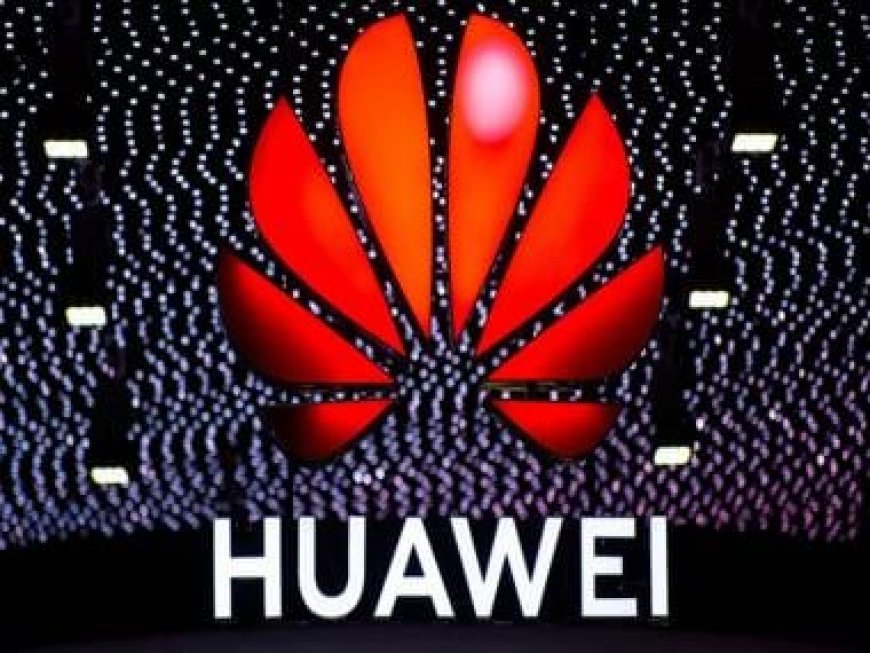Huawei chief says Chinese tech cos should adopt Chinese chips, not rely on 'inferior' foreign chips
Huawei chief says Chinese tech cos should adopt Chinese chips, not rely on 'inferior' foreign chips

Eric Xu Zhijun, the deputy chairman of Huawei Technologies, a company blacklisted by the United States, has urged China to embrace domestically developed semiconductors, despite acknowledging their lag behind foreign-made chips. This statement comes shortly after Huawei introduced new 5G smartphones featuring a Chinese-made advanced processor, which was hailed as a breakthrough.
Xu emphasized the importance of adopting home-grown semiconductor products, even though there is still a technological gap between these and their foreign counterparts in areas such as chips, servers, and personal computers. He argued that without widespread use of domestically developed products, this gap would never close. Xu made these remarks during a speech at the 2023 World Computing Conference in Changsha, the capital of Hunan province.
His comments align with the current patriotic sentiment in China, fueled by Huawei’s recent launch of the Mate 60 Pro and Mate 60 Pro+ 5G smartphones, which are powered by the advanced Kirin 9000s processor, all proudly made in China. These products have come to symbolize China’s resilience in the face of restrictive US technology sanctions.
Xu’s call for increased adoption of domestic semiconductors reflects Huawei’s commitment to promoting and advancing Chinese technology and innovation, despite the challenges posed by international sanctions and competition.
Xu emphasized the significant challenges posed by US export controls on advanced chips and computing systems. He pointed out that obtaining such technology could be exceptionally challenging, if not impossible, due to these export restrictions. Drawing from their past experiences and projections, Huawei believes that this issue will persist as a long-term challenge.
In light of these constraints, Xu stressed the importance of Chinese firms developing chips based on domestically developed technologies that are free from such restrictions. This approach is seen as a way to minimize uncertainty and ensure access to critical technologies.
Xu also expressed Huawei’s belief that China’s semiconductor manufacturing technology will remain in a catch-up mode for an extended period. The semiconductor industry is at the centre of an ongoing technology rivalry between the United States and China, with the US imposing various trade sanctions that have impeded China’s efforts to achieve technological self-reliance.
Huawei, along with its chip design division HiSilicon, was placed on the US Entity List by Washington in May 2019. In response to tightening trade restrictions imposed by the US in 2020, which covered access to semiconductors developed or manufactured using US technology, Huawei has had to adjust its production processes for smartphones and telecommunications network equipment.
Despite these challenges, the success of its new Mate 60 Pro devices has given Huawei an opportunity to regain a strong foothold in the world’s largest smartphone market. In the second quarter, Huawei made its way back into the top five smartphone vendors in China.
During his speech at the Changsha conference, Eric Xu did not specifically disclose details about the advanced processor used in Huawei’s latest 5G smartphones, adding to the mystery surrounding the origin and production of the Kirin 9000s chip. There have been third-party speculations that this advanced chip was manufactured by the prominent Chinese foundry Semiconductor Manufacturing International Corp (SMIC), but neither Huawei nor SMIC has officially confirmed this.
Instead, Xu highlighted Huawei’s HiSilicon-designed Kunpeng and Ascend chipsets as alternative central processing units (CPUs) for domestic computers, particularly those used in cloud computing services and for training artificial intelligence language models. This move indicates Huawei’s efforts to promote and develop domestically designed chip solutions as a strategic response to the challenges posed by international trade restrictions.
What's Your Reaction?

























































